Russian-Israeli Woman Abducted To Press Israel To Release Iranian: Report
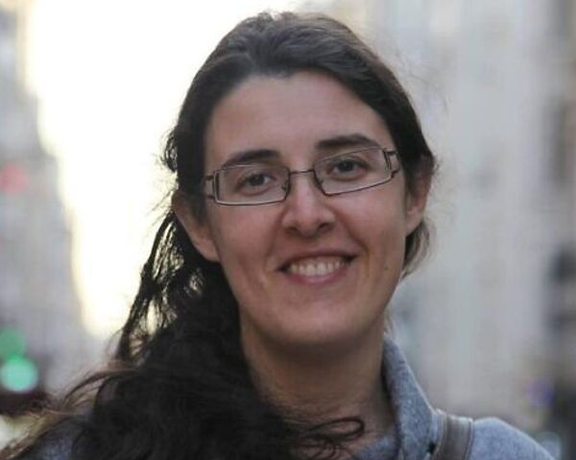
Iraqi sources claim the kidnapping of Russian-Israeli researcher Elizabeth Tsurkov was carried out to press Israel to release a detained Iranian.

Iraqi sources claim the kidnapping of Russian-Israeli researcher Elizabeth Tsurkov was carried out to press Israel to release a detained Iranian.
It is possible that the Iranian in question is Yousef Shahbazi Abbasalilo, who was allegedly snatched from Iranian soil by Israel for planning attacks on Israeli targets in Cyprus, reported the London-based Arabic daily Asharq Al-Awsat on Sunday.
It is not clear if Israel abducted Abbasalilo before or after Tsurkov was abducted.
Sources told the outlet that Moscow is mediating talks that could result in Tsurkov's release soon.
The pro-Iranian militia Kata’ib Hezbollah is believed to be holding Tsurkov in Iraq, while other sources suggest she has been taken to Iran.
On July 3, an Iraqi official told Israeli media that the Islamic Republic has been involved in the abduction in Iraq of the academic.
While Kata'ib Hezbollah denied any involvement in Tsurkov’s kidnapping, an Iraqi official told Israel's Channel 11 that she was arrested by Iraq's intelligence service - or someone posing as such - before being handed over to Iran-backed Kata'ib Hezbollah which has been holding her for months.
An expert on regional proxies across the Middle East including Turkey's proxies in Syria, Tsurkov had traveled to several of the region's terror hotspots.
Tsurkov's mother Irena said they lost contact two months ago. "From what I had known until today, she was in Turkey, working on her research for Princeton. I didn't even know she was in Iraq," she told Israel's N12 News.

Tehran University officials say members of Iraq's Shiite Hashd al-Shaabi militias and other proxies of the Islamic Republic can study at Iranian universities.
Tehran University's public relations office said the decision was made in a meeting attended by the head of Supreme Leader Ali Khamenei's representatives at the universities and the education deputy of Hashd al-Shaabi on Sunday.
"We apply scientific standards to our friends in Hashd al-Shaabi more than other foreign students, because our goal is to improve the professional capabilities of Muslim fighters," said Dean of Tehran University Mohammad Moqimi at the meeting.
The Islamic Republic's efforts to train the Hashd al-Shaabi come in a situation that in recent months many reports have indicated expansion of cooperation between Tehran and Iraqi militia groups.
Last month, Iran International disclosed information about the role of the Islamic Republic in the establishment of the engineering arm of the Iraq’s Hashd al-Shaabi.
According to the information, the Islamic Republic has obtained permits for the establishment of a company for this purpose in exchange for supporting Iraqi Prime Minister Mohammed Shia' Al Sudani to win his office.
The Muhandis General Company (Sharakat al-Muhandis al-Amma) takes its name from Abu Mahdi al-Muhandis, the former deputy commander of Hashd al-Shaabi -- also known as the Popular Mobilization Forces (PMF) -- and a close comrade of former IRGC’s extraterritorial Quds force commander Qassem Soleimani. They were both killed in January 2020 by a US drone strike.
The Muhandis company seeks to become the Iraqi version of Khatam al-Anbiya Construction Headquarters, IRGC’s engineering and contracting arm. Khatam al-Anbiya Construction Headquarter is one of Iran's largest contractors in industrial and development projects.
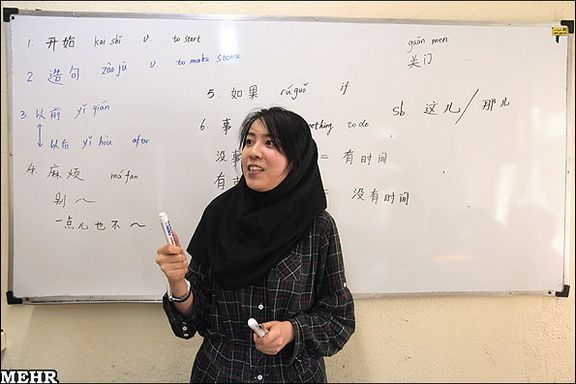
President Ebrahim Raisi has endorsed a law that adds Chinese to the list of foreign languages that can be taught in Iranian middle and high schools.
IRNA state news agency reported Saturday that this is in line with the so-called "fundamental transformation of education based on Islamic-Iranian identity".
It was three years ago and during Hassan Rouhani's administration that the issue of teaching Chinese in Iranian schools was seriously raised.
English and Arabic are two mandatory foreign languages taught in Iranian schools with French, German, Italian, Russian, Spanish and Chinese allowed as additional languages based on choices made by schools and students.
Iran’s Supreme Leader Ali Khamenei had earlier criticized teaching English in general, saying in 2016 that "now we have reached to a point that English language learning has been extended to kindergartens".
Following his comments, the ministry of education put a ban on teaching English at primary schools.
English is not included in Iran's official curriculum during the six years of primary school, but various non-governmental and a small part of public schools teach students English as an extra-curricular subject, and these classes are not mandatory.
In recent years, some government officials have also suggested that instead of English, the teaching of Russian, Chinese and German languages should be supported in Iran.
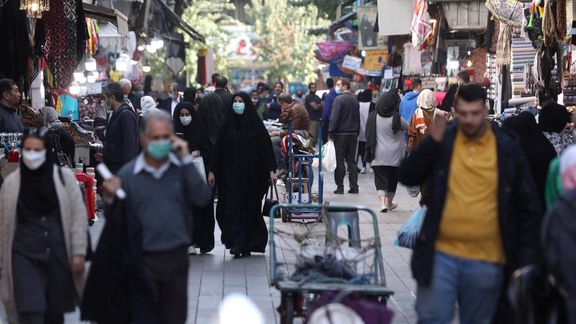
An Iranian lawmaker insisted on Saturday that the annual inflation rate in Iran is 120 percent, not 60 or 70 percent as various politicians and academics cite.
Gholamreza Nouri Ghezeljeh told Rouydad24 website in Tehran that lower inflation figures close to 40 percent presented by some officials who claim they have controlled rising prices is the product of their imagination.
The Iranian government claims to have controlled the inflation rate at about 40 percent. However, as Ghezeljeh noted "High inflation cannot be concealed from the people as they find out about it when they purchase goods in their everyday life."
"Playing with figures will not solve the problem of Iran's economy," said Ghezaljeh, adding that "downplaying economic problems will add to people's distrust of the government." Otherwise, insisting that inflation is under control, while people feel the pressure of rising prices will not solve any problem."
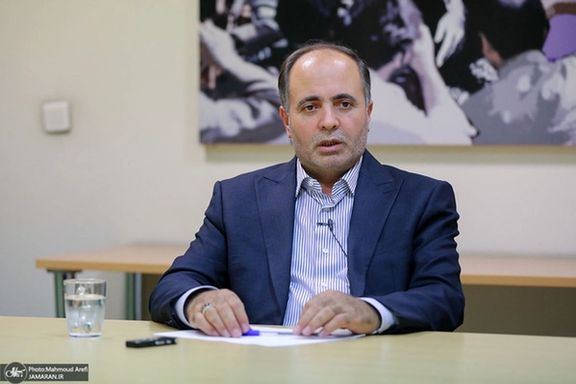
Meanwhile. Former lawmaker Gholam Ali Jafarzadeh Imanabadi blamed the Iranian President for the economic hardships and said: "Raisi is directly responsible for the people's difficult economic situation." He charged that "Raisi keeps issuing orders," but does not realize that his orders do not work.
Imanabadi claimed that Supreme Leader Ali Khamenei allowed the government to make an agreement with the West over the 2015 nuclear deal in a bid to solve the country's economic problems by lifting US sanctions. However, ultraconservative Paydari Party members in the Raisi administration obstructed such an agreement.
The former lawmaker said a nuclear agreement was within reach during the last months of Former President Hassan Rouhani's presidency as the United States was prepared to make a deal with Iran. But Raisi chanted anti-US slogans after his election in June 2021 and formed a new negotiating team that proved to be inefficient in taking the negotiations forward.
Imanabadi reiterated: "It was not US sanctions that created the current economic problem in Iran. It was Raisi's inefficiency and his grudge against the United States that led Iranians to misery although former Foreign Minister Javad Zarif had warned him that the favorable diplomatic situation was going to change in a few months."
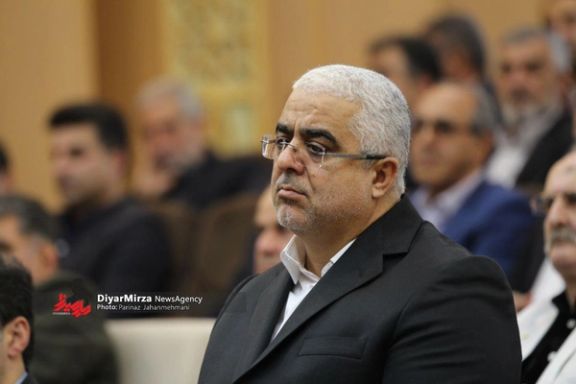
It is not clear if Imanabadi’s claim of Khamenei having given a green light to an agreement is true. Developments during negotiations in mid-2010s and in the past two years show that his office follows every detail in the talks and is the ultimate decider.
Earlier, another lawmaker, Jalal Mahmoudzadeh had said that "the government looks the people in the eye and lies to them." While the government boasts about improving economic indicators, an increasing number of Iranians are forced to live in tents erected in parks and streets as they cannot afford to rent a house particularly in the big cities.
“All the statistics and economic figures presented by Raisi, and other state officials are unreal. It is interesting that statements by the President contradict figures issued by his own government's Statistical Center of Iran."
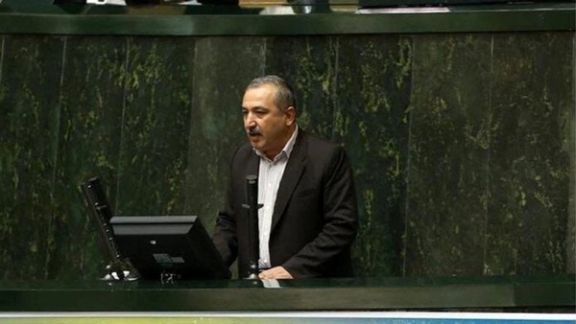
In yet another development, Iranian economist Vahid Shaghaghi Shahri told Etemad newspaper that "during the past 8 years the government has sold $531 billion of oil while there has been no job creation because employment is an outcome of productivity and investment, the two factors that have been non-existent in Iran."
Iran has sold $1.5 trillion of oil during the past 50 years, but the outcome of this has been nothing other than a non-competitive, monopolized, semi-government economy which looks like a caricature of real economy, he said.
The figure he cited mostly represents oil income during the Islamic Republic as oil prices were much lower in the 1970s.
Shahri charged that Iran's development stopped in the 2010s. Iran's economic challenges were created because of a certain school of thought [presumably religious fundamentalism and a xenophobia marked by anti-Americanism], he argued. Therefore, it is impossible to solve the economic crisis with the same approach.
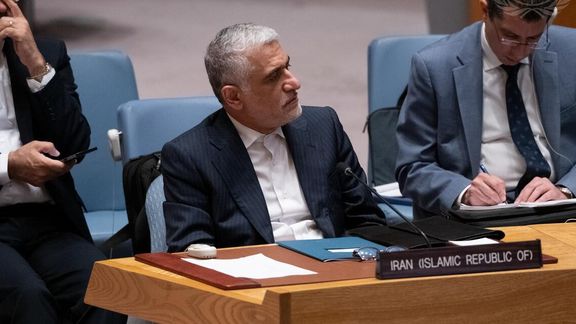
While Iran's UN envoy says Tehran is prepared to resume talks over the 2015 nuclear deal, a seasoned ex-diplomat says Tehran should accept the Western terms.
Former Iranian diplomat, Fereydoun Majlesi told Rouydad24 website in Tehran that "Iran can either accept the West's solution or follow its own path and be prepared for its consequences."
Referring to higher oil exports by Iran, he said: It is true that the restrictions imposed on Iran by the United States are getting weaker on a daily basis, but this should give no reason to Iran to continue its hostile behavior."
He explained that "In fact, Iran has restricted itself."
He also touched upon another aspect of Iran's approach to negotiations. Majlesi said: "Raisi administration's negotiators do not wish to fight the West, but at the same time, they refuse to accept the rules of negotiations. They do not know what to do and that has led to a halt."
"The three European countries in the JCPOA have declared that Iran has violated the agreement. The West believes that Iran's missile development was against the terms of the JCPOA. Some even believe that Iran is potentially very close to producing a nuclear bomb. Therefore, the minimum precondition by the West is returning to the JCPOA as it was under President Hassan Rouhani," Majlesi maintained.
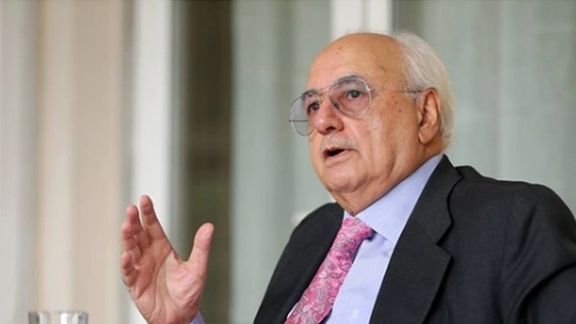
He added: "The point is that a country which is under serious pressures and its case is going to be referred to the UN Security Council can hardly set a precondition for negotiations." He added that Iranian officials should realize that the people are suffering under these pressures, so the government has only two solutions ahead: Accept the West's terms or pay for their own final solution.
Etemad Online in Tehran quoted Iran's ambassador to the United Nations, Amir Saeed Iravani as saying that Tehran's space and missile programs and regional issues do not fall within the scope of UN Resolution 2231, adding that "We are prepared to resume the negotiations to return to the JCPOA as soon as possible and to ensure its full compliance by all parties involved."
Resolution 2231 was related to the JCPOA nuclear agreement and restricted Iranian weapons capable of carrying nuclear weapons. Western powers are lately arguing that Iran is in violation of the agreement, among other things, by delivering drones to Russia.
Meanwhile, Iravani expressed strong objections to the participation of Ukraine's UN ambassador in the July 6 meeting about non-proliferation and the JCPOA. "We strongly protest to the UN Security Council Chief for inviting a country that has nothing to do directly or indirectly to the meeting's agenda. This was neither constructive nor indicative of goodwill," he said.
He described inviting Ukraine's representative to the meeting, "an attempt to divert attentions from the agenda which was discussing implementing the JCPOA and Western side's non-compliance to the agreement particularly the United States' withdrawal from the deal."
He further insisted that Washington should be recognized as the party responsible for the current situation as it has withdrawn from the 2015 deal. Iravani added that the three European partners of the JCPOA have neglected their commitments under the deal and Resolution 2231. He said the United States has arrogantly forced other UN members to violate Resolution 2231. "this is unprecedented," Iravani said.
Under the circumstances, Iravani said, Iran has no choice other than adopting countermeasures to restore its rights under paragraphs 26 and 36 of the JCPOA. "It was the United States and not Iran that left the agreement," he said, adding that whatever Iran has done as her reaction is revocable once the agreement is restored.
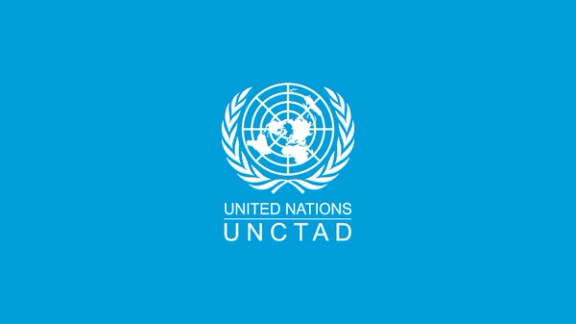
The United Nations Conference on Trade and Development says Iran's share of attracting foreign investment last year was only one tenth of a percent (one thousandth) of the world total.
According to this report, published June 5, Iran has managed to attract only 1.5 billion dollars of foreign direct investment in 2022.
In 2017, and after the lifting of international sanctions, Iran attracted more than five billion dollars in foreign direct investments, but in 2018, this was halved, and after that, the annual amount fluctuated around 1.5 billion dollars.
The United States imposed oil export and banking sanction on Iran in 2018, making a series of demands including a stronger agreement to restrict Tehran's nuclear and missile programs. Thes sanctions have triggered an economic crisis, driving annual inflation to 70 percent and reducing the value of Iran's currency 12-fold.
Among Iran's neighboring countries, the UAE has attracted the most foreign investment.
In total, the Arab countries of the Persian Gulf region have attracted about 37 billion dollars in foreign direct investment in 2022, of which the UAE's share is 60%. Last year, Turkey attracted $13 billion.
The United States attracted the highest amount of foreign direct investment in the world with $285 billion, followed by China, Singapore and Hong Kong.
The US is also at the top in terms of investment in foreign countries with 269 billion dollars.
Figures by the UNCTAD show that a total of 1.3 trillion dollars of direct investment was made last year, which is 12% less than in 2021. The reason for the drop was the decrease in investments by advanced countries abroad.